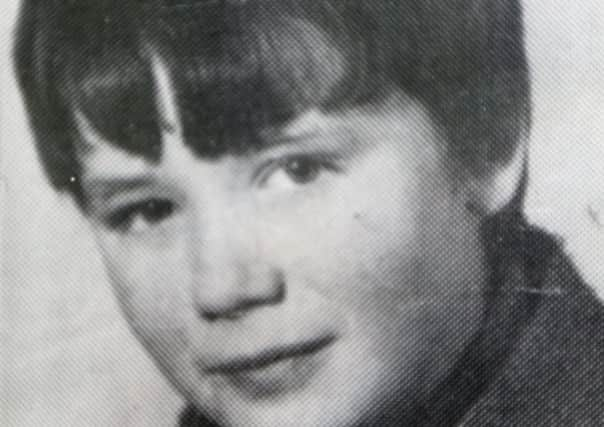'˜Soldier A' named for first time


Previously known only as Soldier A, the former serviceman, who died in 2001, was named as William Glasgow-a member of C Company of the 1st Battalion of the Worcestershire and Sherwood Foresters.
Soldier B, who was with William Glasgow at the time of the shooting will appear before the inquest but will retain his anonymous status throughout.
Advertisement
Hide AdAdvertisement
Hide AdThe details emerged on the opening day of the fresh inquest into the killing of Manus Deery at the city’s courthouse.
An initial inquest in July, 1973 recorded an open verdict meaning that a lingering implication that the teenager was engaged in illegal activity at the time of his shooting still remains.
On the evening of May 19, 1972 Manus Deery left his home at Limewood Street and after going to a local chip shop in the area with some friends met with some more people at a tunnelled entrance to Meenan Square in the Bogside. Shortly before 10.30pm a single shot rang out from an Army observation post and ricocheted off a wall close to where the group of teenagers were standing. The round struck Manus Deery on the left hand side of the back of his head. He was pronounced dead at Altnaglevin Hospital shortly after 11pm that night. The court heard today that a fragment of the bullet which lacerated his brain was the cause of death.
The court also heard that a secret memo compiled by RUC Special Branch in 1972 informed the British authorities that in their opinion Manus Deery was not a known terrorist nor was he involved in any terrorist activities.
Advertisement
Hide AdAdvertisement
Hide AdThe inquest is being overseen by Presiding Coroner, Lord Justice Adrian Colton and is scheduled to last two weeks.
A lengthy opening statement from Senior Counsel for the Coroners Office, Mr Gerry McAlinden set the parameters for the inquest. He said that the case will seek to establish the circumstances in which Manus Deery died.
The inquiry will also examine whether or not that the British Army’s rules of engagement during the Northern Ireland conflict known as the ‘Yellow Card’ were breached by Soldier A.
It also emerged that a decision not to prosecute William Glasgow or Soldier B was taken on November 9, 1972, despite a letter from the RUC to the Department of Public Prosecutions that Manus Deery was shot in circumstances that could be considered to have been outside the ‘Yellow Card’. However the Coroner noted that the rules of engagement were a set of guidelines for soldiers and were not enshrined in law.
Advertisement
Hide AdAdvertisement
Hide AdThe British Army version of events surrounding the killing contended that they fired at a gunman carrying in a rifle in the vicinity on the night in question. That version has been heavily refuted by the Deery family since 1972.
First to take the stand to give a state enemy was Helen Reynolds (nee Deery), the sister of the victim. Whilst she did not witness the events leading to her brothers death she told the court that the intention behind seeking a fresh inquest was to clear her brothers name.
Another witness, Edward Divin, also wounded by the ricochet, told Derry court that at no point did he witness any gunmen in the vicinity and that Manus Deery was not armed and neither had he anything in his hands that could have been construed as a weapon.